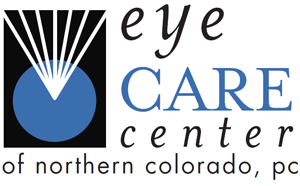As the summer season rolls in, you might find yourself shopping for warm weather favorites: swimsuits, shorts, and of course, sunglasses!
With all the fun options for sunglasses out there, it can be hard to know how to choose a pair. And just when you’ve narrowed down the style you like, you notice there’s an option to get either polarized or nonpolarized.
Even if you’ve heard the term “polarized” before, you might not know what it means — or if polarized sunglasses are better for your eyes. And since polarized sunglasses tend to be more expensive, it helps to understand what they do to figure out if it’s worth the cost.
Here’s everything you need to know about polarized sunglasses and whether or not you should invest in a pair this summer.
Sunglasses for UV Light Protection
Sunglasses aren’t just for looking good. They play an important role in protecting your eyes, too.
If you’re spending time outside, it’s always a good idea to wear sunglasses. Sunglasses protect your eyes from damage caused by UV rays as well as wind or debris in the air that can get in your eyes. They can also protect against dry eye by blocking wind that depletes the lubricating moisture in your eyes.
All sunglasses — whether polarized or not — protect your eyes by reducing the amount of light hitting your eyes. This doesn’t necessarily have to do with the tint of lenses — darker lenses or ones with a mirror coating are not automatically better for your eyes.
The most important factor when choosing sunglasses (besides style, of course!) is UV light protection. Whether your sunglasses are polarized or not, make sure they protect against 100% of UV light. The label might say “UV400,” which means the same thing as “100% UV light protection.”
Both labels mean those lenses protect against 100% of UVA light and UVB light.
- UVA light penetrates the skin and can cause skin aging and wrinkles
- UVB light causes sunburn and can cause skin cancer
Exposure to UV light can have damaging effects on your eyes as well. It can cause cataracts, damage to the cornea, or degrade your retinas. When your sunglasses filter 100% of UVA and UVB light, both your eyes and the delicate skin around them are protected.
Once you know your sunglasses protect against UV light, the next decision is whether to get polarized lenses or non-polarized ones. Here are the pros and cons of polarized sunglasses.
Polarized Sunglasses vs Non-Polarized Sunglasses
When lenses are polarized, they have a chemical applied to the lens that filters more light. This helps to reduce glare.
Glare is light directed at your eyes from one concentrated angle. When light is bouncing off various angles of an object, it scatters and isn’t as noticeable to your eye.
But when a surface is smooth, like a body of water or the glass of a mirror, light reflects at one angle and creates a more concentrated stream of light. That’s much harder for your eye to absorb.
This is where polarized sunglasses come in. The advantage of polarized sunglasses is that they reduce glare by reducing how much light hits your eye. By filtering the light your eye takes in, they help you see more clearly.
Polarization has more to do with reducing eye strain and allowing you to see more clearly than protection against UV rays. But that doesn’t mean polarized sunglasses aren’t worth the cost.
Here’s when to get polarized sunglasses — or when you might opt for a non-polarized pair.
Polarized Sunglasses
Polarized sunglasses are most useful if you spend a lot of time outdoors, especially around surfaces that reflect a lot of glare like water and snow.
Doing activities where your eyes take in a lot of glare can cause eye strain. And during certain activities — like driving a car — glare can be downright dangerous. Sun glare has been linked to car accidents with pedestrian fatalities.
If you do water or snow sports, polarized sunglasses can make a big difference in reducing eye strain, protecting your vision, and helping you see more clearly. For avid fishermen, polarized lenses can help you see the water more clearly — and the fish in it.
If you’re skiing, snowboarding, or snowshoeing, polarized sunglasses can help you see the surface of the terrain more clearly so you can adjust accordingly and keep yourself safe.
Some golfers say that polarized sunglasses help them see the green better, too.
Non-Polarized Sunglasses
While polarized sunglasses help many people see more clearly, they can make some people dizzy or impact their vision in strange ways. Try on a pair of polarized sunglasses and try walking around to see how your vision is affected.
You also might not want polarized sunglasses if you’ll be reading LCD displays such as screens in cars or airplanes. Polarized lenses can make LCD screens harder to read. Pilots, for example, shouldn’t wear polarized sunglasses. They’re known to interfere with the displays they need for navigating planes and can make landing more difficult.
If you’re shopping for sunglasses for kids, polarized lenses are a bonus, but it’s most important that their lenses protect against 100% of UV light.
Where to Shop for Polarized Sunglasses
If it sounds like polarized sunglasses are for you, there’s nothing better than trying them out in person. Eye Care Center of Northern Colorado has a versatile selection of sunglasses for any style. Once you find some you like, you can even order them with prescription lenses.
And if you’re curious about a pair of sunglasses you already own, bring them in! We can use our spectrometer to test the effectiveness of the lenses against protecting UV light and see if they’re polarized.
We’re committed to keeping your eyes looking and feeling great with regular exams and specialized care. That’s why we recommend you wear sunglasses — polarized or not — whenever you’re outside.
Learn more about protecting your eyes from these conditions linked to sun exposure >

